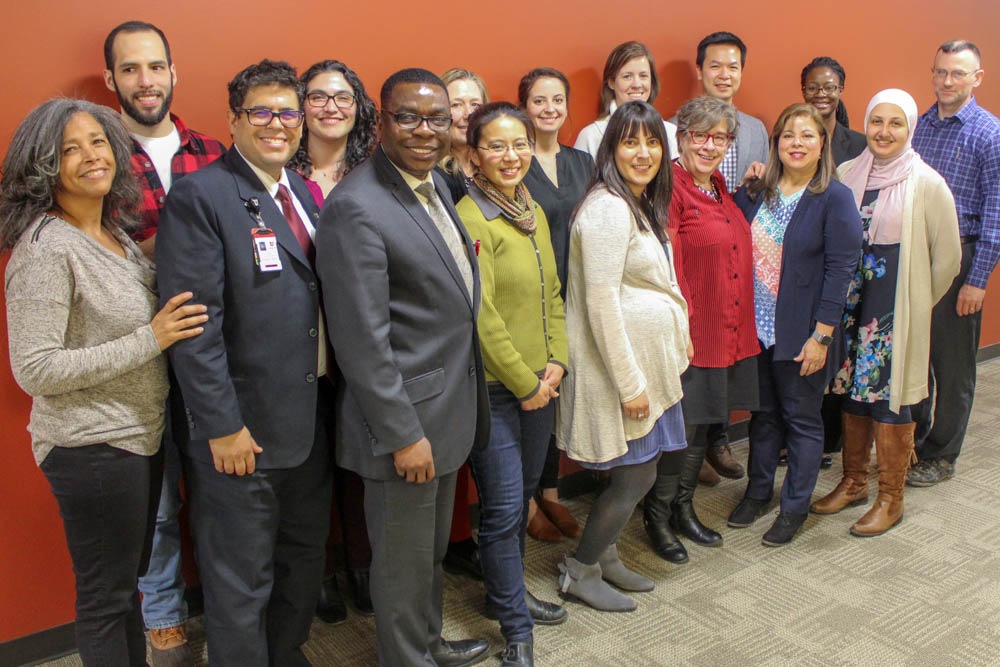
Written by Kristen Steiner
On Feb. 27, the University of Utah held its first, full day Culturally Aware Mentoring (CAM) training in the Williams Building. With many in attendance and two external facilitators brought in to teach the course, the group had a day of participation and discussion on mentoring represented and underrepresented populations within everyone’s field of work and how to improve mentoring relationships and skills.
“The challenge is inclusion of the well represented, underrepresented, and more,” said Jeanette Ducut-Sigala, CAM participant and Manager in the Bioscience PhD Programs at the University of Utah. “We need universal inclusion and this training is a great way to express those ideas.”
Philip Cheng, PhD, an Assistant Scientist at the Henry Ford Health Systems, and Kelly Diggs-Andrews, PhD, Founder and CEO of Diggs-Andrews Consulting, LLC, came to Utah to teach the full day CAM training where participants were able to spend the time identifying their personal assumptions, biases, and privileges that may operate in their mentoring relationships. Through group discussion, case studies, and role play, participants had the opportunity to learn and practice culturally aware mentoring skills.
“We want you to take the lessons that are learned together today and apply them,” said Diggs Andrews as she opened the session by introducing the training and its many aspects.
The training started with a group introduction activity identifying what type of personalities were in the room. Not only were personality types identified, but participants were able to discuss their racial identities and how they feel being part of different communities and how they are perceived in the cultural climate they live in.
Throughout the rest of the day, the training progressed with participants working through case studies and role plays pertaining to culturally aware situations, cultural mentoring practices, and discussing key terms and definitions in mentoring roles and capacities.
At the end of the training, participants were asked to silently reflect on key mentoring principles that they not only learned and will apply to their mentee and mentoring relationships, but reflect on the things they learned that applied to them personally as a mentor, an academic, a person, and the diversity they see within their circles and the communities they live in.
“Diversity is getting people to the party, but inclusion is getting people to dance,” Ducut-Sigala said. “We all have our struggles and backgrounds, but it is important that we use those to lift others up.”